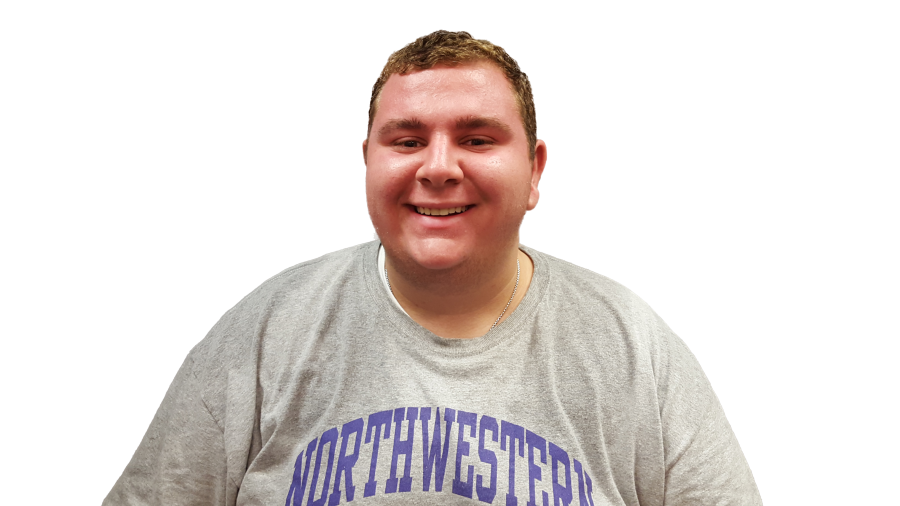Papastefan: Media bias in the 2016 presidential race
October 11, 2015
There’s been a lot of debate in recent years about bias in media. While most everyone would agree that outlets such as MSNBC and Fox News carry political bias, there is no such consensus about bias in mainstream outlets like CNN, NBC or ABC, just to name a few. News outlets are biased by nature — there are only so many pages in a newspaper or so many minutes in a nightly news program and not every important story can be published, so the press must choose what information reaches consumers. In terms of what inspires media bias, ratings are the most obvious source, as news companies are businesses that have to produce enticing content to survive. However, the notion that mainstream content is only driven by ratings is misguided. To see active political favoritism in mainstream media, we need not look further than the current election cycle, where the press shapes the presidential race in both parties more than ever before.
When considering coverage of the 2016 presidential race, surely the first name that comes to mind is Donald Trump. Trump has sparked an unprecedented frenzy in the media, which can largely be attributed to a polarizing persona that lends itself so perfectly to entertainment. This has effectively eliminated coverage of most of the other candidates in the race, with the press really only publishing non-Trump-related content when something controversial or damaging to a candidacy happens. For example, the press manipulated Jeb Bush’s commentary on the Umpqua Community College shooting to diminish his candidacy. ABC, along with a number of other news outlets, reported Jeb Bush responded to the mass shooting by saying “stuff happens,” a sound bite quickly seized by Democrats all the way up to our nation’s commander in chief and used to criticize Bush for undermining the tragic nature of mass shootings. However, Jeb Bush’s comments, when listened to entirely, are not a shoulder shrug reaction to the tragedy and are part of a larger statement in which he implies that we are often too impulsive when reacting to complicated situations. It is ironic that such comments would inspire a false narrative perpetuated by the press. This is just one of countless examples of the press spinning words to fit an agenda and to undermine a Republican candidate’s legitimacy. It is easy to see why liberal media would want to undermine more palatable candidates and instead promote a candidate like Trump, whose radical stances would likely put him at a disadvantage in a general election.
There’s usually more vocal protest of political bias in mainstream media from the conservative side (e.g. Sarah Palin’s coining of the term “lamestream media”). However, political partiality is not always skewed in favor of the left. Possibly the best example during this election cycle is in the coverage of Bernie Sanders’ campaign. Sanders supporters have been vociferously enraged with the lack of coverage of Sanders’ campaign, with news outlets offering little coverage of Sanders’ rise in the polls until recently. A recent study found that, as of Sept. 24, Sanders received just eight minutes of coverage on network evening news throughout 2015, compared to 82 minutes for competitor Hillary Clinton and 145 minutes for Donald Trump. To put that in perspective, Sanders received about the same amount of coverage as Republican candidate Chris Christie, but Sanders is polling more than 25 percent nationally, while Christie sits at just under 2.5 percent. It is obvious to see how competition for the Democratic nomination would cause more people to tune in to election coverage than if it were a foregone conclusion, just as people are more inclined to tune into a sporting event if it is a nail-biter versus a blowout. Thus, the lack of Sanders-related coverage can be attributed to political favoritism, and not just ratings-driven bias, because his presence as a legitimate challenger to Clinton would make for a much more exciting saga. With the left’s main concern with Sanders being that his radical stances could make him unelectable, it makes sense that news outlets would seek to promote a more mainstream candidate.
Political bias in media is not a myth, and it is more rampantly influential now than ever before. As shown in this election cycle, the media can play a huge role in the party nomination process, not only in what and how they report, but in what they avoid. While media-driven assaults on Donald Trump and his bid have likely contributed to his rise among conservatives, and simultaneously made him unelectable in the minds of a number of voters, a lack of press coverage of the Sanders campaign has perhaps been the greatest factor in determining the Democratic frontrunner. An example of media partiality toward any given candidate is often not much further than a Google search of their name. In a time when we as a society are so constantly in tune with the world around us, it is important to be cognizant of the potential bias in the news and to take an extra second to critically analyze a situation before allowing it to affect the way we view a candidate. After all, the only thing worse than an uninformed electorate is a misinformed electorate.
Grant Papastefan is a Bienen freshman. He can be contacted at [email protected]. If you would like to respond publicly to this column, send a Letter to the Editor to [email protected].
The views expressed in this piece do not necessarily reflect the views of all staff members of The Daily Northwestern.


